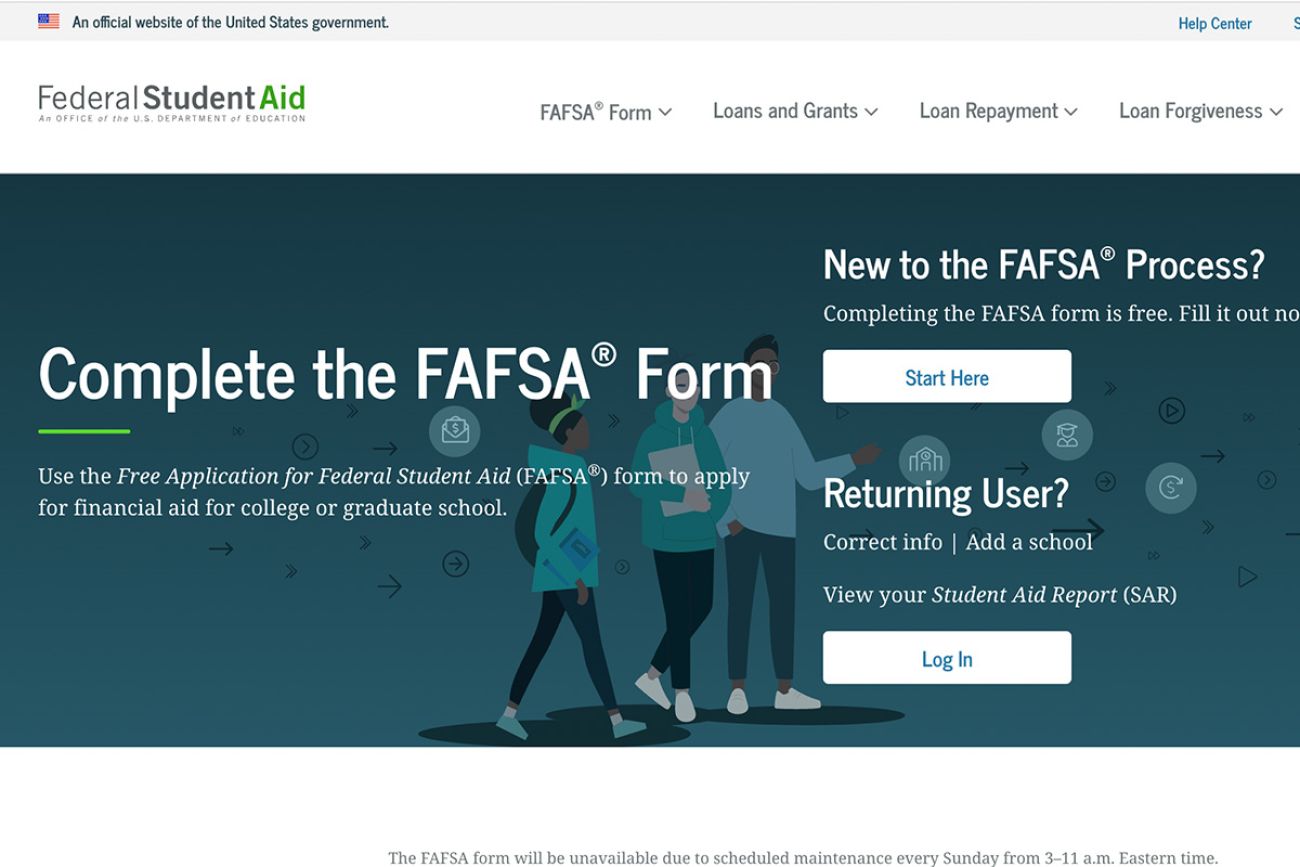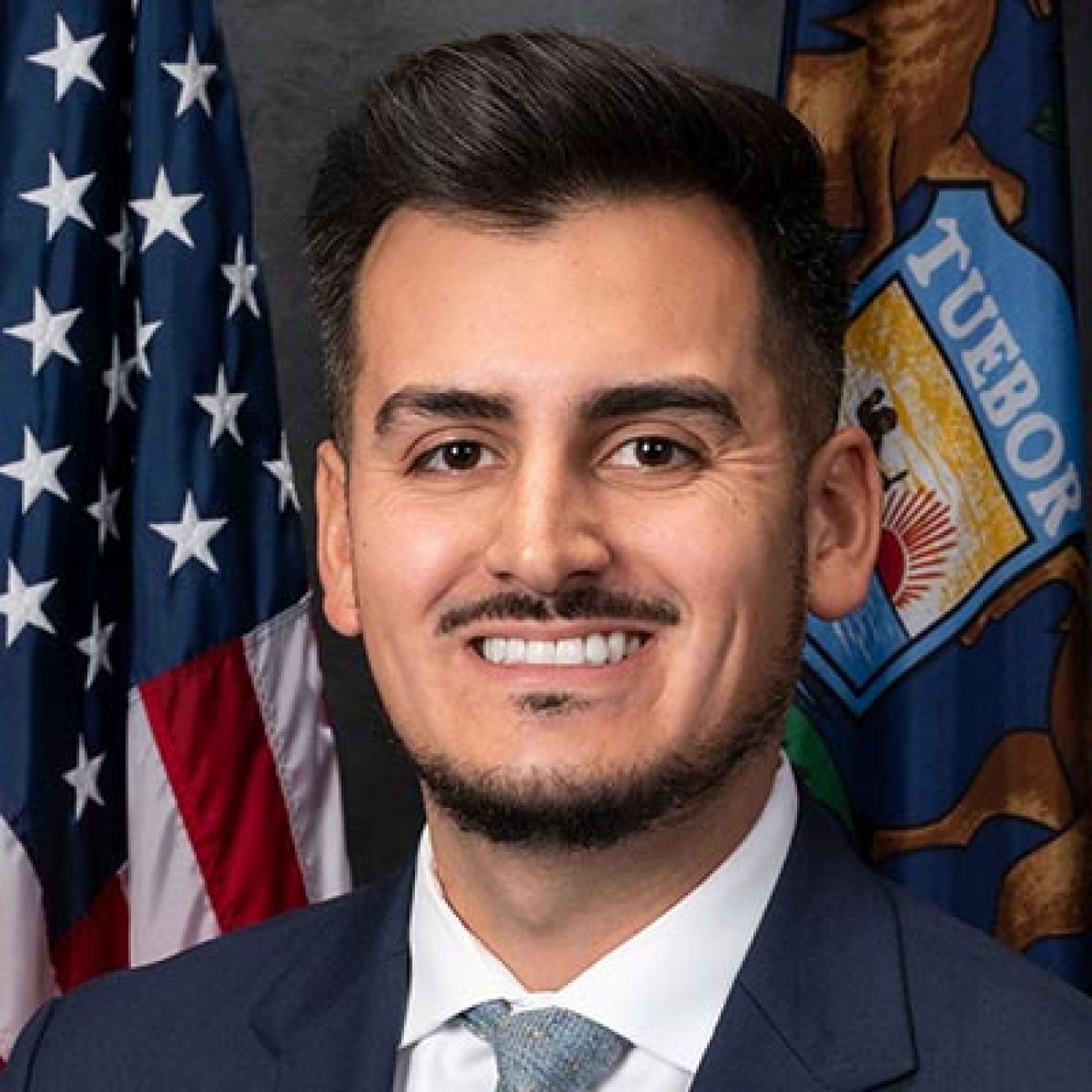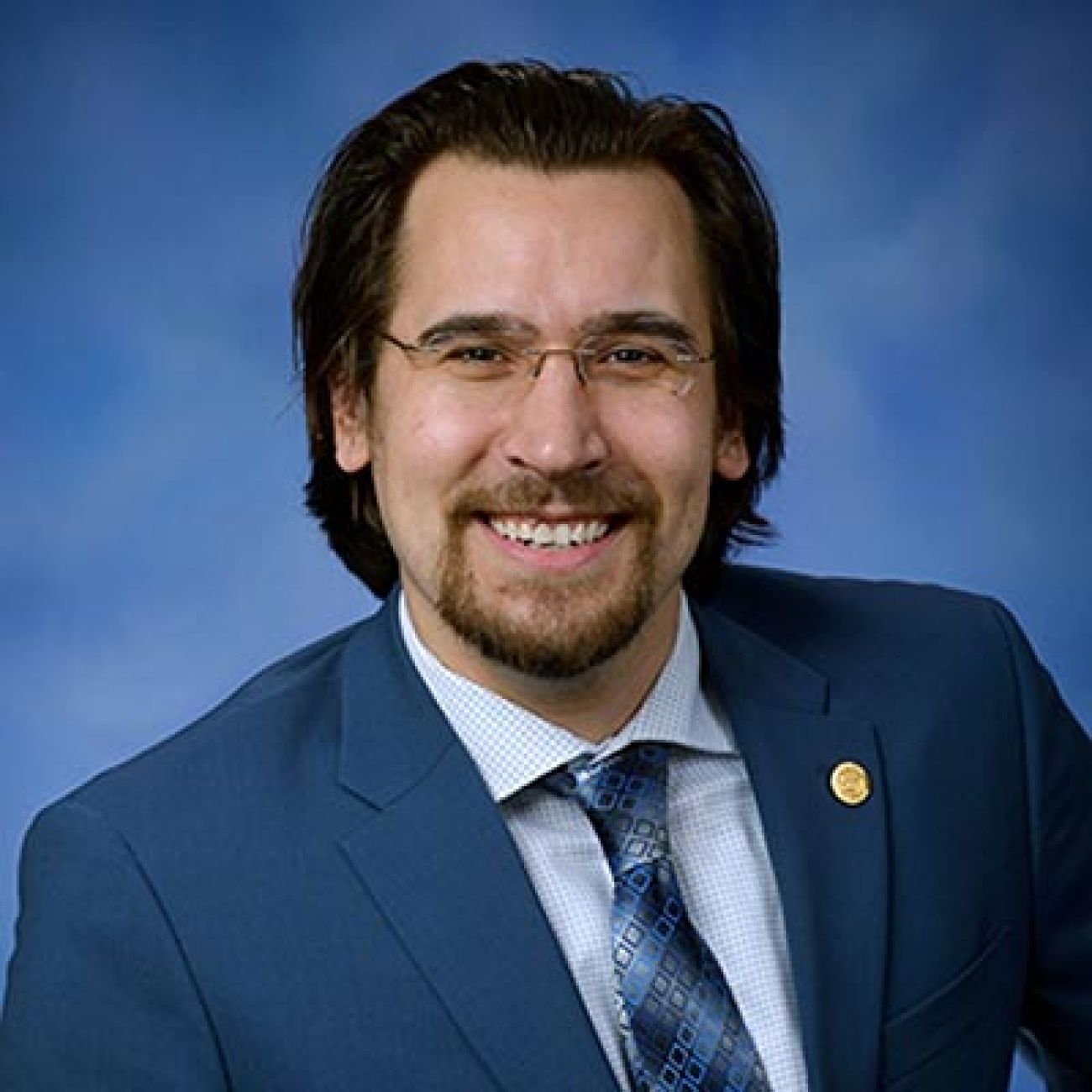Michigan may require high school seniors to file FAFSA financial aid form

- A new bill would require high school students to fill out the FAFSA financial aid form (or opt out) to graduate
- Advocates for Senate Bill 463 say it will help students understand there is often money available to make college more affordable
- A Republican lawmaker opposes the bill saying it could lead to students taking out loans or grants they don’t fully understand
A college degree offers a better shot at a steady job and earning more money.
But high sticker prices can deter students from even applying to schools, particularly students whose families may be unfamiliar with the college application process or not understand how financial aid works.
State Sen. Darrin Camilleri remembers first-hand telling his dad he wanted to apply to Kalamazoo College. It wasn’t until he completed the Free Application for Federal Student Aid (FAFSA) form that his dad realized that the private college was within reach.

“That instantly made it an option that was something that I could attain,” he told Bridge Michigan. “I would not have known that if I did not fill out the FAFSA and continue down that process. I would have just stuck to, ‘Well, it’s too expensive, I can’t afford it.’”
Related:
- The future of student loan forgiveness: What to know in Michigan
- Whitmer signs ‘transformative’ $24.3B Michigan education budget. What to know
Camilleri, D-Trenton, is sponsoring Senate Bill 463, which would make filling out the FAFSA (or an opt-out form) a high school graduation requirement in Michigan starting with the 2024-2025 school year, joining a growing number of states requiring or encouraging the form’s completion.
Filling out the FAFSA, he said, helps students “know all of your options before you.”
Currently, only about half of Michigan high school students make the inquiry, well below the national rate.
Students must fill out the FAFSA when applying for college and resubmit it each year to be eligible for college financial aid from the federal government and most state programs. Providing information on family income and assets allows federal and state governments to estimate how much financial assistance you’re entitled to. This can range from federal Pell Grants to state, school or private loans, grants, scholarships and work-study programs. And filling it out promptly can make a difference in many states that have a finite amount of money to set aside for student aid.
The form is free, but it can be challenging for some families to complete, which is why education advocates say it’s important for schools and states to ensure students and their families are given support to make the task less daunting. (It’s worth noting that a new, purportedly simplified version of the form is expected to be unveiled in December.)
In recent years, Michigan political leaders have approved a series of measures to make college more affordable, making FAFSA completion even more critical. For example, the new Michigan Achievement Scholarship provides financial aid to attend a state community college, independent nonprofit college or public university.
As of Aug. 18, 52.8 percent of the Michigan high school class of 2023 completed a FAFSA form, according to a tracker published by the nonprofit National College Attainment Network (NCAN). That’s below the national FAFSA completion rate of 57.1 percent.
If Camilleri’s bill becomes law, Michigan would join 12 other states that now have some form of universal FAFSA completion, according to NCAN. Louisiana was the first state to require it; its FAFSA completion rate is 70.1 percent. (Students can meet the graduation requirement by filling out the FAFSA, a state merit scholarship application, or an opt out form or waiver request from the state.)
Dan Applegate, superintendent at Niles Community Schools, told Bridge that parents often don’t fill out the form because they think their income is too high to qualify for federal aid or feel uneasy about sharing income information with the government or local school.
Applegate said he supports increasing FAFSA completion but hopes the Legislature will track to see which student subgroups typically do not fill out the form and ensure the state isn’t making it harder for certain groups to graduate.
That concern aside, Applegate said, “I’m all for any creative idea to increase the percentage of students who complete the FAFSA.”
Camilleri’s bill includes two types of waivers that would exempt a student from having to fill out the federal form. A parent could fill out a waiver that would waive their student from filling out the federal form or a school district could submit a hardship waiver.
Ryan Fewins-Bliss, executive director of the Michigan College Access Network, which works to increase college access particularly for low-income students, students of color and first-generation students, supports the bill.
FAFSA helps students understand their financial options whether that’s more financial help than they realized or less than they anticipated.
“When students are choosing what the rest of their lives look like, why wouldn’t (we) want them to have the best information to make that decision?” he said.
Camilleri said the waiver process helps ensure students aren’t punished for circumstances that are outside their control.
For example, undocumented students are not eligible for federal student aid and can only fill out the FAFSA if they have a social security number. And some students may have parents who are unwilling to complete the FAFSA or sign a parent waiver.
Rep. Brad Paquette, R-Niles, a former teacher, told Bridge he is opposed to the bill, in part because high school students aren’t always fully informed about the strings that sometimes accompany financial aid.
He said students are told there is “free money” if they fill out the form but often don’t realize they may have to repay federal grants or other aid if they are derailed in their college career.

Paquette has proposed a bill that would require state and college associations to provide information to students about scenarios where students have to pay back their federal aid.
“I think the requirement to fill out the FAFSA can push students down roads that they may not fully understand,” he said.
“College debt is very real and communicating realistically with these students is what they need.”
The federal student aid website notes students may have to repay some or all of their federal grants if they withdraw early from a program, switch from full-time to part-time, receive other scholarships or grants that reduce the need for federal student aid or receive Pell Grant funds from more than one school at a time. It also offers a primer for how to fill out the FAFSA.
Camilleri said his hope is that Michigan high schools would work with school counselors and college support staff to help students complete FAFSA.
“Good schools are already doing that,” he said. “So this is about ensuring that all schools give students that additional support staff to make sure that the FAFSA is complete.”
“Those who are focused on college attainment, college access, they offer these services. And I understand that not every school can afford to do that. However, we just passed the best school budget in Michigan's history. This is an opportunity to invest in all of those support services, including college access.”
Michigan schools that prepare students early for the college application process can raise college-going rates. Bridge reported last year this strategy can work even in schools with high rates of economically disadvantaged students.
These schools educated students and their families early in their high school careers on how to apply for admission and financial aid and didn’t place all that responsibility on school counselors to help prepare students for what’s next.
Representatives from the Michigan Association of Superintendents & Administrators and the K-12 Alliance of Michigan, which represents 123 school districts in Southeast Michigan, said their groups have not yet taken a position on Camilleri’s FAFSA bill.
Bob McCann, executive director for the K-12 Alliance, said there is some concern the FAFSA bill would add another graduation requirement. “Anytime you're adding non-instructional barriers to graduation, it is at least going to raise concerns with educators that we'd want to discuss with the (bill) sponsor.”
Sen. John Damoose, R-Harbor Springs, said in a statement that while he has not reviewed the specific bill, he “can say from experience that the FAFSA is an invaluable tool for families looking to make college affordable.
“It can be complicated to fill out, but the benefits can be huge. We should be doing what we can to help more Michigan families access this tool.”
Michigan Education Watch
Michigan Education Watch is made possible by generous financial support from:
Subscribe to Michigan Education Watch
See what new members are saying about why they donated to Bridge Michigan:
- “In order for this information to be accurate and unbiased it must be underwritten by its readers, not by special interests.” - Larry S.
- “Not many other media sources report on the topics Bridge does.” - Susan B.
- “Your journalism is outstanding and rare these days.” - Mark S.
If you want to ensure the future of nonpartisan, nonprofit Michigan journalism, please become a member today. You, too, will be asked why you donated and maybe we'll feature your quote next time!






